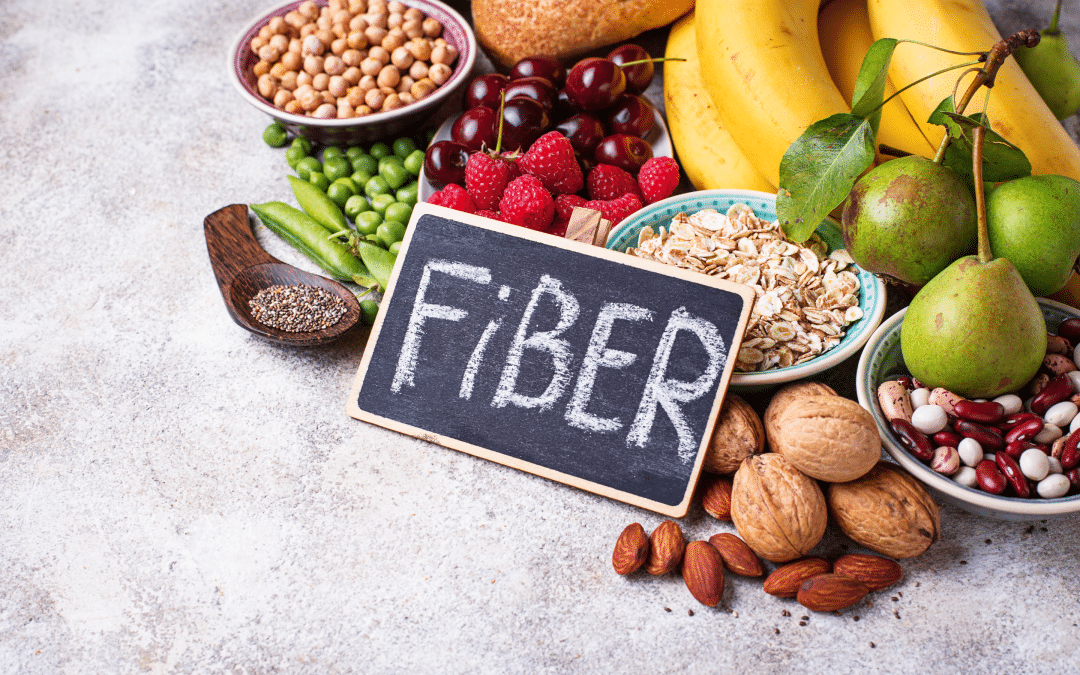Gut Health Hero: Fiber, Detox, and Digestion Benefits of Eating Spinach
In the grand narrative of human health, certain foods stand as quiet, unassuming heroes, their profound impact often overshadowed by more exotic or aggressively marketed superfoods. Among these unsung champions, spinach emerges as a veritable titan, a verdant powerhouse whose humble leaves conceal a universe of benefits for our internal ecosystem – the gut. This isn’t merely a tale of nutrition; it’s a story of intricate biological dance, where every fiber, every micronutrient, and every phytochemical within spinach plays a pivotal role in orchestrating digestive harmony, supporting the body’s natural detoxification pathways, and fostering a thriving internal landscape. For the knowledgeable seeker of well-being, understanding spinach’s multifaceted contributions to gut health is to unlock a potent secret to vitality.
The Gut: A Universe Within – And Why It Needs a Hero
Before we delve into spinach’s heroic deeds, let us first appreciate the stage upon which it performs: the human gut. Far more than a mere digestive tube, the gut is a complex, dynamic ecosystem, often referred to as our "second brain." It houses trillions of microorganisms – bacteria, fungi, viruses – collectively known as the gut microbiota. This microscopic community, weighing as much as our brain, influences everything from nutrient absorption and immune function to mood regulation and chronic disease prevention. A healthy gut is characterized by diversity and balance, a flourishing garden where beneficial bacteria outnumber potential pathogens. When this delicate balance is disrupted – a state known as dysbiosis – the consequences can ripple throughout the entire body, manifesting as digestive discomfort, inflammation, weakened immunity, and even mental health issues.
The modern diet, often laden with processed foods, sugar, and unhealthy fats, and severely lacking in dietary fiber and diverse plant compounds, is a primary culprit in fostering dysbiosis. It starves the beneficial bacteria, allowing less desirable species to proliferate. This is where spinach, with its rich tapestry of nutrients, steps onto the stage, ready to restore equilibrium and fortify the gut against the ravages of modern living.
Chapter 1: The Foundation – Fiber, The Gut’s Unseen Architect
The cornerstone of spinach’s gut-health prowess lies in its exceptional fiber content. Dietary fiber, often dismissed as indigestible roughage, is anything but inert. It is the architect of gut structure, the nourisher of its inhabitants, and the silent force behind efficient digestion. Spinach offers a potent blend of both soluble and insoluble fiber, each playing distinct yet complementary roles in the gut’s grand design.
Insoluble Fiber: The Gentle Scourer and Bulker
Imagine insoluble fiber as the conscientious cleaner and builder of the digestive tract. Primarily composed of cellulose, hemicellulose, and lignin, this type of fiber does not dissolve in water. Instead, it acts like a soft, microscopic sponge, absorbing water as it travels through the digestive system. This absorption significantly increases stool bulk, making it softer and easier to pass.
In spinach, the insoluble fiber provides a gentle yet effective mechanical action, helping to sweep waste products and undigested food particles through the colon. This accelerated transit time is crucial for preventing constipation, a pervasive modern ailment that not only causes discomfort but also allows toxins to linger in the bowel for extended periods, potentially leading to reabsorption. By promoting regular bowel movements, spinach’s insoluble fiber reduces the risk of diverticular disease, hemorrhoids, and even certain types of colorectal cancer. It’s the diligent guardian, ensuring the smooth flow and efficient expulsion of waste, preventing stagnation and the build-up of metabolic detritus.
Soluble Fiber: The Nurturing Gel and Prebiotic Powerhouse
If insoluble fiber is the structural engineer, soluble fiber is the benevolent gardener, nurturing the gut’s microbial ecosystem. Found in spinach as pectins, gums, and mucilages, soluble fiber readily dissolves in water, forming a viscous, gel-like substance. This gel has several profound effects on digestion.
Firstly, it slows down the rate at which food leaves the stomach and enters the small intestine. This delayed gastric emptying contributes to a feeling of fullness and satiety, aiding in weight management. More importantly, it allows for a more gradual absorption of glucose into the bloodstream, helping to stabilize blood sugar levels and preventing sharp spikes and crashes. This is particularly beneficial for individuals managing diabetes or insulin resistance.
Secondly, and perhaps most critically for gut health, soluble fiber is a powerful prebiotic. Unlike insoluble fiber, which largely passes through the digestive tract intact, soluble fiber is a preferred food source for the beneficial bacteria residing in the colon, particularly Bifidobacteria and Lactobacillus species. These bacteria ferment the soluble fiber, breaking it down into incredibly beneficial compounds known as Short-Chain Fatty Acids (SCFAs).
The Symphony of Short-Chain Fatty Acids (SCFAs): Butyrate, Acetate, Propionate
SCFAs are the unsung heroes produced by our gut microbes, and spinach’s fiber is a key catalyst for their production. Of these, butyrate is perhaps the most celebrated. It is the primary energy source for the cells lining the colon (colonocytes), nourishing them and maintaining the integrity of the gut barrier. A strong gut barrier, often referred to as "tight junctions," prevents undigested food particles, toxins, and pathogens from "leaking" out of the gut and into the bloodstream – a condition known as "leaky gut" or increased intestinal permeability, which is implicated in numerous autoimmune and inflammatory conditions. Butyrate also possesses potent anti-inflammatory properties, directly modulating immune responses within the gut and throughout the body.
Acetate and propionate, the other major SCFAs, also contribute significantly. Acetate travels to the liver and muscles, influencing metabolism and energy production. Propionate can signal satiety to the brain and may play a role in cholesterol synthesis. Collectively, SCFAs from spinach’s soluble fiber contribute to a lower gut pH, creating an environment less hospitable to pathogenic bacteria and more conducive to the growth of beneficial species. They modulate gene expression in colonocytes, influence immune cell development, and even communicate with the brain via the gut-brain axis, potentially impacting mood and cognitive function.
Thus, spinach’s fiber isn’t just about moving things along; it’s about actively shaping the internal environment, providing sustenance for our microbial allies, and generating compounds that are fundamental to gut barrier function, immune regulation, and systemic health.
Chapter 2: Beyond Fiber – Micronutrients and Phytochemicals for Gut Harmony
While fiber rightly earns its spotlight, spinach’s contribution to gut health extends far beyond its structural and prebiotic components. Its leaves are a veritable treasure trove of vitamins, minerals, and potent phytochemicals, each playing a unique and vital role in maintaining the delicate balance and resilience of the digestive system. These compounds act as an ensemble cast, supporting fiber’s lead role and contributing to a harmonious gut environment.
Vitamins and Minerals: The Essential Co-Factors
-
Vitamin K (Phylloquinone): Spinach is one of the richest sources of Vitamin K1. While primarily known for its role in blood clotting and bone health, emerging research suggests its influence on gut health. Vitamin K is essential for the synthesis of certain proteins that may impact gut barrier function. Furthermore, a healthy gut microbiome itself produces Vitamin K2, indicating a reciprocal relationship where dietary Vitamin K supports the gut, and a healthy gut enhances Vitamin K status. Its anti-inflammatory properties are also beneficial for gut lining integrity.
-
Vitamin A (Beta-carotene): Spinach is abundant in beta-carotene, a precursor to Vitamin A. Vitamin A is crucial for maintaining the integrity of mucosal surfaces, including the lining of the gut. It plays a critical role in immune system function, particularly in the gut-associated lymphoid tissue (GALT), which represents a significant portion of our body’s immune cells. By supporting the health of the gut lining, Vitamin A helps prevent pathogen entry and maintains a robust immune defense. It also acts as a powerful antioxidant, protecting gut cells from oxidative stress.
-
Vitamin C (Ascorbic Acid): As a potent antioxidant, Vitamin C protects the delicate cells of the gut lining from damage caused by free radicals generated during digestion and metabolic processes. It is also essential for collagen synthesis, a key structural protein that maintains the strength and elasticity of the gut wall. Furthermore, Vitamin C enhances the absorption of non-heme iron (the type found in plants) from spinach itself, ensuring adequate iron levels, which are vital for oxygen transport and cellular energy, including that of gut cells.
-
Folate (Vitamin B9): This essential B vitamin is crucial for DNA synthesis and cell division. The cells lining the gut are among the most rapidly dividing cells in the body, constantly regenerating to maintain a healthy barrier. Adequate folate intake from spinach ensures the efficient repair and renewal of these cells, which is fundamental for gut integrity and function. Folate also plays a role in methylation processes, which are vital for detoxification pathways and overall cellular health.
-
Magnesium: Spinach is an excellent source of magnesium, a mineral involved in over 300 enzymatic reactions in the body. In the context of gut health, magnesium is critical for proper muscle function, including the peristaltic contractions that move food through the digestive tract. It acts as a natural laxative by relaxing the bowel muscles and drawing water into the colon, further aiding in regularity and preventing constipation. Beyond the gut, magnesium’s role in stress reduction indirectly benefits gut health, as stress is a known disruptor of gut function and microbiota balance.
Phytochemicals: The Silent Protectors and Modulators
Beyond the well-known vitamins and minerals, spinach is a treasure chest of phytochemicals – bioactive plant compounds that offer remarkable health benefits, particularly for the gut.
-
Flavonoids (Quercetin, Kaempferol): Spinach is rich in various flavonoids, including quercetin and kaempferol. These potent antioxidants possess significant anti-inflammatory properties. In the gut, flavonoids directly interact with the microbiota, influencing its composition and activity. They can inhibit the growth of pathogenic bacteria while promoting the proliferation of beneficial species. Flavonoids also strengthen the gut barrier by enhancing tight junction proteins, further preventing "leaky gut." Their ability to scavenge free radicals protects gut cells from oxidative damage, reducing inflammation and supporting overall gut resilience.
-
Carotenoids (Lutein, Zeaxanthin, Beta-carotene): Besides beta-carotene, spinach contains high levels of lutein and zeaxanthin, renowned for their eye health benefits. However, these powerful antioxidants also play a crucial role in gut health. They protect gut cells from oxidative stress and inflammation, which are underlying factors in many digestive disorders. Their presence helps maintain the integrity of the gut lining and supports a healthy immune response within the gut.
-
Chlorophyll: The pigment that gives spinach its vibrant green hue, chlorophyll, is structurally similar to heme in our blood. While its direct mechanisms in human detoxification are still being fully elucidated, chlorophyll is a powerful antioxidant and anti-inflammatory compound. Some theories suggest it may bind to certain toxins and heavy metals in the digestive tract, aiding in their excretion. More broadly, its antioxidant properties protect gut cells from damage, fostering a healthier environment.
-
Saponins: Spinach contains saponins, natural plant compounds with a soapy characteristic. Emerging research indicates that saponins may have immunomodulatory effects and could influence gut microbiota composition. They may also possess anti-inflammatory and antioxidant properties, contributing to the overall protective effects of spinach in the gut.
A Necessary Acknowledgment: Oxalates
For a knowledgeable audience, it is important to address the presence of oxalates in spinach. Spinach is a high-oxalate food, and oxalates can bind to minerals like calcium and iron, potentially reducing their absorption. In susceptible individuals, high oxalate intake can contribute to kidney stone formation. However, for most healthy individuals, the benefits of spinach far outweigh this concern, especially when consumed as part of a varied diet.
Strategies to mitigate oxalate concerns include:
- Cooking: Blanching or steaming spinach can significantly reduce its oxalate content as oxalates are water-soluble.
- Pairing with Calcium: Consuming spinach with calcium-rich foods (e.g., a dairy-based dressing, cheese) allows oxalates to bind with calcium in the gut, forming an insoluble complex that is then excreted, rather than absorbed.
- Hydration: Adequate water intake helps flush the kidneys and prevent stone formation.
- Moderation and Variety: Enjoying spinach as part of a diverse diet that includes other leafy greens and vegetables reduces reliance on any single high-oxalate source.
By understanding this aspect, the knowledgeable consumer can confidently integrate spinach into their diet, harnessing its immense benefits while being mindful of individual needs.
Chapter 3: The Detoxification Narrative – How Spinach Supports the Body’s Cleanse
The concept of "detoxification" is often shrouded in marketing hype and misconceptions. It’s crucial to understand that the human body possesses sophisticated, intrinsic detoxification systems, primarily orchestrated by the liver, kidneys, and gut. Spinach doesn’t perform a magical "cleanse" in the fad sense; rather, it acts as a powerful ally, providing the necessary tools and support to enhance these natural, ongoing physiological processes. Spinach’s role in detoxification is multi-pronged, leveraging its fiber, vitamins, and phytochemicals.
Liver Support: The Body’s Main Filter
The liver is the central command for detoxification, processing toxins into less harmful, water-soluble compounds that can be excreted. This process occurs in two main phases: Phase I (functionalization) and Phase II (conjugation). Spinach provides critical support for both:
-
Antioxidant Protection: During Phase I detoxification, intermediate compounds can be highly reactive free radicals, potentially causing damage to liver cells. Spinach’s abundant antioxidants – Vitamin C, beta-carotene, lutein, zeaxanthin, and flavonoids (quercetin, kaempferol) – act as shields, neutralizing these free radicals and protecting liver cells from oxidative stress. This ensures the liver can efficiently process toxins without incurring self-inflicted damage.
-
Chlorophyll’s Potential: As mentioned, chlorophyll in spinach is a powerful antioxidant. Some theories suggest that its unique structure may allow it to bind to certain environmental toxins, such as heterocyclic amines (HCAs) formed during high-temperature cooking of meats, and polycyclic aromatic hydrocarbons (PAHs), preventing their absorption and reducing their burden on the liver. While research is ongoing, its general antioxidant and anti-inflammatory properties certainly contribute to overall liver health.
-
B Vitamins (Folate): Folate, alongside other B vitamins, serves as crucial cofactors for many of the enzymes involved in both Phase I and Phase II detoxification pathways in the liver. Adequate folate from spinach ensures these enzymatic reactions can proceed efficiently, supporting the liver’s capacity to transform and excrete toxins.
Kidney Support: The Excretion Pathway
The kidneys filter waste products from the blood and excrete them in urine. Spinach supports kidney function indirectly but effectively:
- Hydration: Spinach has a high water content, contributing to overall hydration. Adequate hydration is fundamental for optimal kidney function, facilitating the filtration process and preventing the concentration of waste products that could otherwise lead to kidney stones (though as noted, excessive oxalate intake can be a concern for susceptible individuals, balanced consumption and cooking methods are key).
- Antioxidants: The antioxidants in spinach protect kidney cells from oxidative stress and inflammation, supporting their long-term health and functional capacity.
The Gut as a Primary Detox Organ: Binding and Excretion
Perhaps the most direct and significant way spinach supports detoxification is through its actions within the gut itself. The gut is not merely a site of absorption; it’s a critical pathway for the elimination of toxins from the body.
-
Fiber’s Binding Power: Spinach’s insoluble fiber acts like a physical sponge, directly binding to various unwanted substances in the gut. This includes cholesterol, excess bile acids (which carry metabolic waste and toxins from the liver), and environmental toxins (e.g., heavy metals, pesticides). Once bound, these substances are encased within the fiber matrix and are efficiently carried out of the body with the feces, preventing their reabsorption into the bloodstream. This "first-pass" detoxification in the gut significantly reduces the burden on the liver and kidneys.
-
Microbiome’s Detox Role: A healthy and diverse gut microbiota, fostered by spinach’s prebiotics, plays a crucial role in detoxification. Beneficial bacteria can metabolize certain harmful compounds, breaking them down into less toxic forms. Conversely, dysbiosis can lead to the production of pro-inflammatory compounds and increased gut permeability, allowing more toxins to enter the bloodstream (endotoxemia). By promoting a balanced microbiome, spinach indirectly enhances the gut’s detoxification capacity.
-
Gut Barrier Integrity: The SCFAs produced from spinach’s soluble fiber strengthen the gut barrier. A robust gut lining acts as a selective filter, preventing the passage of toxins and pathogens from the gut lumen into systemic circulation. If the gut barrier is compromised ("leaky gut"), toxins can easily cross into the bloodstream, creating a systemic inflammatory load and overwhelming the liver’s detoxification capacity. Spinach, by nourishing the colonocytes and reducing inflammation, reinforces this vital barrier, making it a frontline defender against internal toxicity.
In essence, spinach doesn’t perform "detox" in isolation. It empowers and optimizes the body’s own sophisticated detoxification machinery, ensuring that waste products are efficiently processed, bound, and eliminated, while protecting the organs involved from oxidative stress and damage. It’s a supportive role, yet an utterly indispensable one.
Chapter 4: Digestive Harmony – The Symphony of a Well-Functioning Gut
The combined effects of spinach’s fiber, micronutrients, and detox support culminate in a state of digestive harmony – a well-tuned symphony where every instrument plays its part perfectly. This harmony manifests in myriad ways, extending far beyond the digestive tract to influence overall well-being.
Relief from Constipation and Diarrhea: The Regulator
As discussed, spinach’s insoluble fiber adds bulk and softness to stool, promoting regular, comfortable bowel movements and effectively relieving chronic constipation. But its soluble fiber also plays a role in regulating bowel function; by forming a gel, it can help solidify loose stools, offering a degree of relief from certain types of diarrhea. This dual action makes spinach a true regulator, helping to normalize bowel habits.
Reduced Inflammation: The Calming Influence
Chronic inflammation in the gut is a precursor to many digestive disorders, including Inflammatory Bowel Disease (IBD) and Irritable Bowel Syndrome (IBS). Spinach’s anti-inflammatory arsenal is formidable:
- SCFAs (Butyrate): These microbial metabolites are potent anti-inflammatory compounds, directly soothing the gut lining and modulating immune responses.
- Flavonoids and Carotenoids: Quercetin, kaempferol, lutein, and beta-carotene directly scavenge free radicals and inhibit inflammatory pathways, reducing both local gut inflammation and systemic inflammatory markers.
- Vitamins A and C: Both contribute to immune regulation and reduce oxidative stress, which fuels inflammation.
By consistently providing these anti-inflammatory agents, spinach helps to calm an overactive immune response in the gut, promoting healing and reducing the symptoms associated with inflammatory conditions.
Strengthened Gut Barrier: The Unbreachable Wall
The integrity of the gut barrier is paramount for health. Spinach contributes to its strength through several mechanisms:
- Butyrate: Directly nourishes colonocytes and strengthens tight junctions between cells.
- Vitamin A: Supports the health and regeneration of mucosal linings.
- Antioxidants: Protect the gut lining from damage.
- Folate: Ensures efficient cell division and repair of the gut lining.
A robust gut barrier acts as a formidable defense, preventing the passage of harmful substances into the bloodstream, thereby reducing systemic inflammation and the risk of autoimmune conditions often linked to "leaky gut."
Gut-Brain Axis Optimization: The Mind-Body Connection
The gut and brain are in constant communication via the gut-brain axis, a bidirectional highway involving nerves, hormones, and immune signals. A healthy gut, nourished by spinach, positively impacts mental and emotional well-being:
- Neurotransmitter Precursors: The gut microbiome, supported by spinach’s prebiotics, plays a role in producing or influencing the production of neurotransmitters like serotonin, often called the "happiness hormone." A significant portion of the body’s serotonin is produced in the gut.
- Reduced Inflammation: Systemic inflammation, often originating in the gut, is linked to mood disorders like depression and anxiety. By reducing inflammation, spinach indirectly supports mental health.
- Magnesium: Spinach’s magnesium content contributes to nerve function and relaxation, further aiding in stress reduction, which in turn benefits gut health.
Immune System Boost: The Gut’s Sentinel Role
The gut houses 70-80% of the body’s immune cells, making gut health synonymous with immune health. Spinach empowers the immune system through multiple pathways:
- Healthy Microbiome: A diverse and balanced microbiome, fostered by spinach’s fiber, trains and modulates the immune system, teaching it to distinguish between friend and foe.
- Gut Barrier Integrity: A strong gut barrier prevents pathogens from entering the bloodstream, reducing the workload on the immune system.
- Vitamins and Antioxidants: Vitamins A, C, and K, along with flavonoids and carotenoids, directly support immune cell function, antibody production, and defense against pathogens.
- Anti-inflammatory Effects: By reducing chronic low-grade inflammation, spinach helps the immune system function more effectively when faced with actual threats, rather than being constantly activated by internal stressors.
Weight Management: The Satiety Factor
While not directly a gut health benefit, improved weight management is a significant outcome of a well-functioning gut, and spinach plays a role:
- Satiety from Fiber: The bulk and gel-forming properties of spinach’s fiber promote feelings of fullness, reducing overall calorie intake.
- Blood Sugar Stabilization: Soluble fiber helps regulate blood sugar, preventing cravings and energy crashes that can lead to overeating.
- Metabolic Support: A healthy microbiome, supported by spinach, can influence metabolism and energy expenditure, contributing to a healthier body weight.
The cumulative effect of spinach’s nutrients is a gut that operates efficiently, resiliently, and harmoniously. It’s a gut that absorbs nutrients optimally, eliminates waste effectively, protects against pathogens, calms inflammation, and communicates positively with the brain and immune system.
Chapter 5: Practical Integration – Making Spinach Your Gut Health Ally
Embracing spinach as a gut health hero doesn’t require drastic dietary overhauls. Its versatility makes it remarkably easy to integrate into daily meals. The key is consistent consumption and mindful preparation.
Preparation Methods: Raw vs. Cooked – A Balanced Approach
Both raw and cooked spinach offer distinct advantages for gut health:
-
Raw Spinach: Excellent for preserving heat-sensitive nutrients like Vitamin C and some B vitamins. It retains its full fiber structure, providing maximum bulk. Raw spinach is fantastic in salads, smoothies, and wraps. However, raw spinach has a higher oxalate content, which for some individuals (especially those prone to kidney stones) might warrant moderation.
-
Cooked Spinach: Cooking, particularly blanching or steaming, significantly reduces oxalate content by releasing water-soluble oxalates. Heat also breaks down cell walls, making certain nutrients more bioavailable, such as beta-carotene (Vitamin A precursor) and iron. Cooked spinach is ideal for stir-fries, omelets, soups, stews, and sautéed side dishes. While some Vitamin C might be lost, the increased bioavailability of other nutrients and reduced oxalates make it a highly beneficial option.
The Recommendation: A balanced approach incorporating both raw and cooked spinach throughout the week is ideal. This ensures a broad spectrum of nutrient intake and mitigates potential concerns.
Recipe Ideas for Daily Integration:
- Morning Smoothies: Blend a generous handful of fresh spinach into your morning fruit smoothie. The flavor is remarkably mild, and it’s an effortless way to start your day with fiber and micronutrients.
- Power Salads: Make spinach the base of your salads, adding a variety of colorful vegetables, lean protein, and a healthy dressing.
- Sautéed Side Dish: Quickly sauté spinach with garlic and a drizzle of olive oil for a simple, nutritious side.
- Hidden in Meals: Incorporate chopped spinach into pasta sauces, lasagna, casseroles, curries, and chili. It wilts down significantly, making it easy to "hide" for those who are less fond of its taste.
- Egg Dishes: Add spinach to omelets, frittatas, and scrambled eggs for an extra nutrient boost.
- Green Juices: For a concentrated dose, spinach can be juiced with other vegetables and fruits.
- Baked Goods (Surprisingly!): A small amount of pureed spinach can be added to savory muffins or even green pancakes for kids, adding nutrients without altering taste significantly.
Addressing Concerns for a Knowledgeable Audience:
- Oxalates Revisited: As discussed, for most healthy individuals, oxalate intake from spinach is not a concern, especially with proper preparation and varied diet. Individuals with a history of kidney stones should consult their doctor or a registered dietitian regarding oxalate intake and consider cooking methods that reduce oxalates and ensuring adequate calcium intake.
- Nitrates: Spinach is naturally rich in nitrates. While often associated with processed meats, plant-based nitrates are generally beneficial, converting to nitric oxide in the body, which supports cardiovascular health. However, for infants under six months, high nitrate intake can be a concern, so infant formulas typically use low-nitrate water. For adults, the benefits of spinach’s nitrates generally outweigh any potential risks.
- Pesticides: Spinach is often on the "Dirty Dozen" list due to potential pesticide residues. For those concerned, choosing organic spinach is an option. Otherwise, thoroughly washing conventional spinach under running water is recommended to remove surface residues.
The ultimate goal is consistency. Regular, even daily, consumption of spinach in varied forms will yield the most profound and lasting benefits for gut health. It’s a long-term investment in your internal ecosystem, one that pays dividends across all aspects of your well-being.
Conclusion: The Ongoing Saga of Spinach and Your Gut
The story of spinach and its profound impact on gut health is one of quiet heroism, demonstrating how a simple, everyday food can be a monumental force for internal well-being. From its robust fiber profile that acts as both a structural engineer and a nurturing gardener for our gut microbiota, to its rich array of vitamins, minerals, and phytochemicals that protect, nourish, and regulate, spinach emerges as a multifaceted champion.
It’s the unseen architect, building strong foundations through fiber that ensures digestive regularity and feeds our beneficial bacteria. It’s the steadfast protector, guarding against inflammation and oxidative stress with its antioxidant army. It’s the silent ally in detoxification, supporting our liver and kidneys while actively binding and eliminating toxins in the gut. And ultimately, it’s the orchestrator of digestive harmony, leading to not just a happier gut, but a more vibrant, resilient, and balanced self.
For the knowledgeable individual seeking to optimize their health, the narrative of spinach offers a clear and compelling directive: embrace this verdant hero. Integrate it consistently into your diet, in all its versatile forms. By doing so, you’re not just eating a vegetable; you’re actively investing in the health of your internal universe, fostering a thriving gut that will, in turn, empower every facet of your life. The saga of spinach and your gut is an ongoing one, promising a legacy of vitality and well-being, leaf by powerful leaf.






